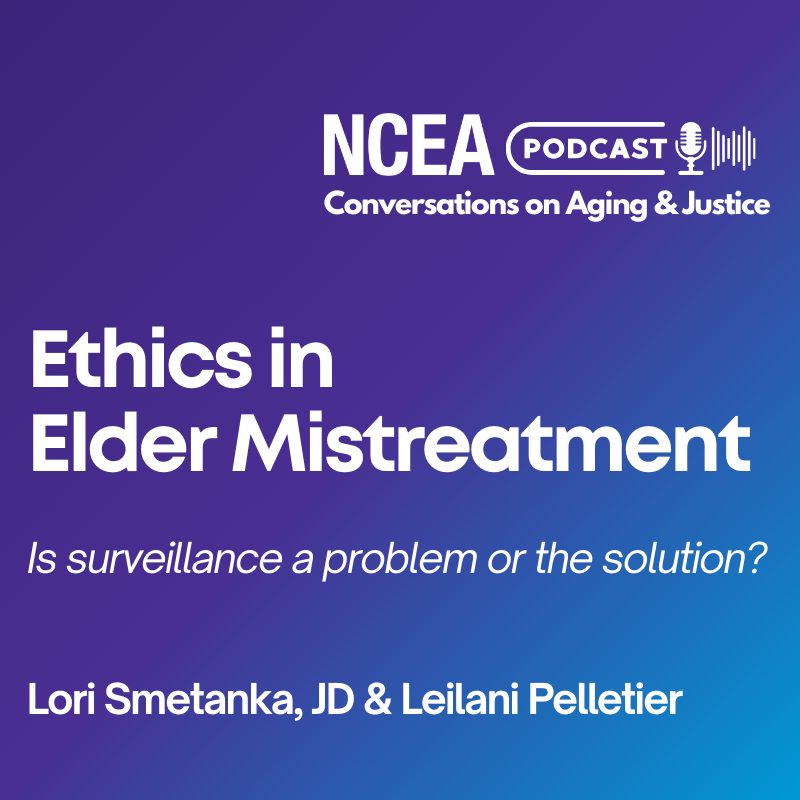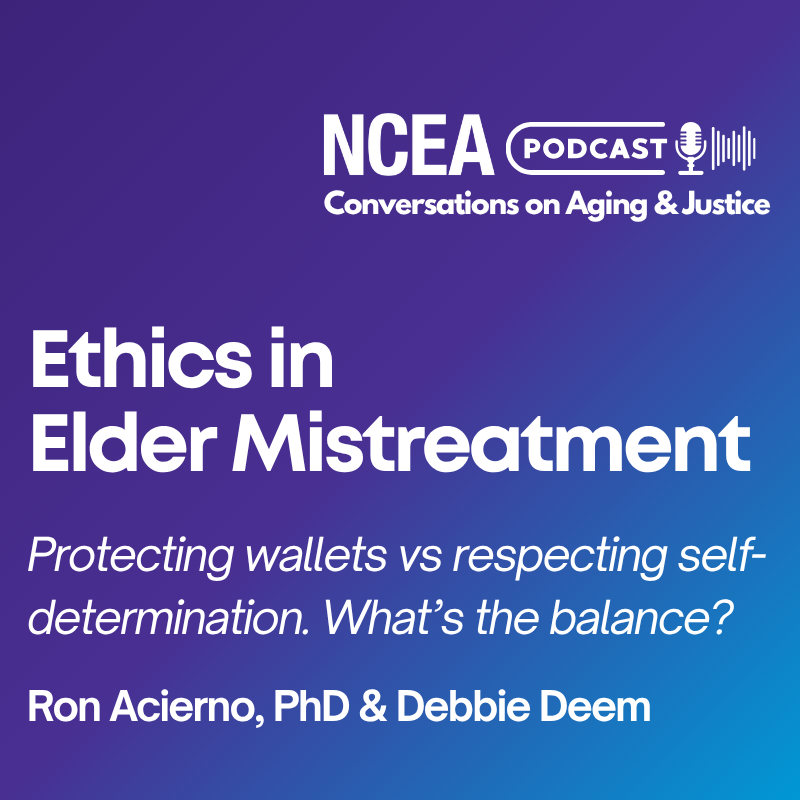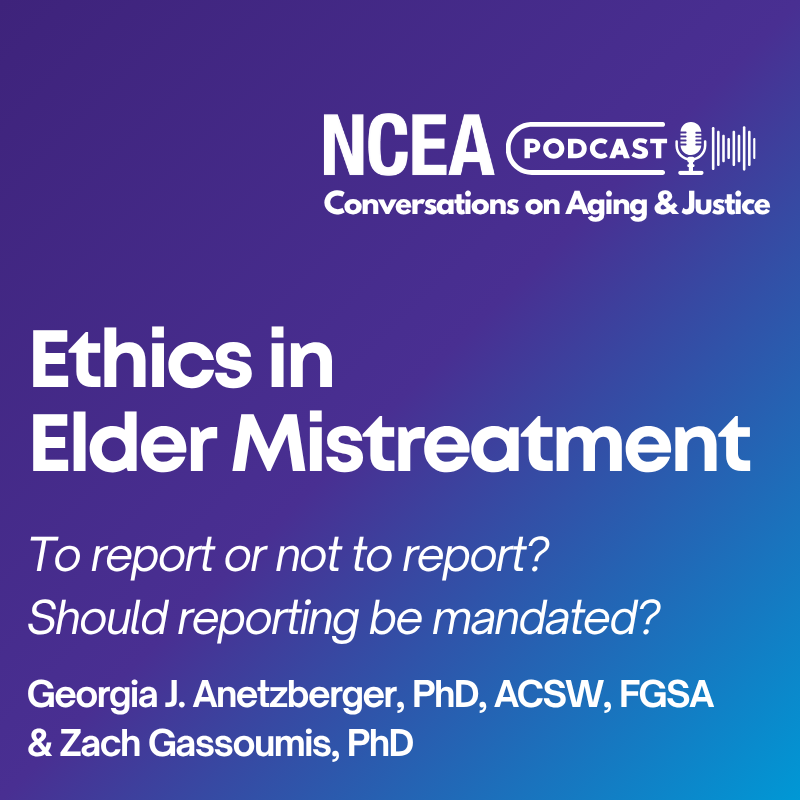Ethics in Elder Mistreatment Podcast Series
This podcast series explores elder mistreatment through an ethical lens. Join us in examining ethical dilemmas in elder abuse prevention and intervention while considering principles of autonomy, consent, and justice for older adults.

Episode 4: Is surveillance a problem or the solution?
For residents in long-term care and their families, surveillance can be a complex and nuanced issue. While cameras and other devices can offer information about the type of care residents are receiving and how they are being treated by staff, other residents, and visitors, they may be invasive and potentially violate privacy rights. The fourth installment of our Ethics in Elder Mistreatment podcast series delves into these critical issues with Lori Smetanka, Executive Director of the National Consumer Voice for Quality Long-Term Care and Leilani Pelletier, State of Ohio Long-Term Care Ombudsman.

Episode 3: Is it Self-Neglect or Societal Neglect?
Elder self-neglect is a very complex phenomenon that is difficult for older adults to experience and challenging for professionals to address. Intervening in cases of self-neglect presents a significant dilemma: balancing an individual’s autonomy and right to make decisions (however risky they may appear) with the professional responsibility to prevent harm. Kathy Greenlee and Jennifer Spoeri discuss the challenges of determining when and how to intervene in cases of self-neglect while honoring an individual’s rights and dignity.

Episode 2: Protecting wallets vs respecting self-determination
In our efforts to protect older adults from financial exploitation and related harms, we must also keep in mind the importance of respecting older adults’ agency, autonomy, and independence. Our second episode in this series features Debbie Deem and Dr. Ron Acierno. Together, they delve into the ethical dilemmas faced by professionals and family members when intervening in cases of financial exploitation and why conventional interventions which are over-corrective may sometimes do more harm than good.

Episode 1: To report or not to report? Should reporting be mandated?
Mandated reporting of elder abuse raises ethical considerations, including balancing and older person’s autonomy and self-determination while promoting their safety and security, while also considering potential unintended consequences of reporting such as increased harm or distress. To help navigate this ethical terrain, we invited Dr. Georgia Anetzberger and Dr. Zach Gassoumis to weigh in.